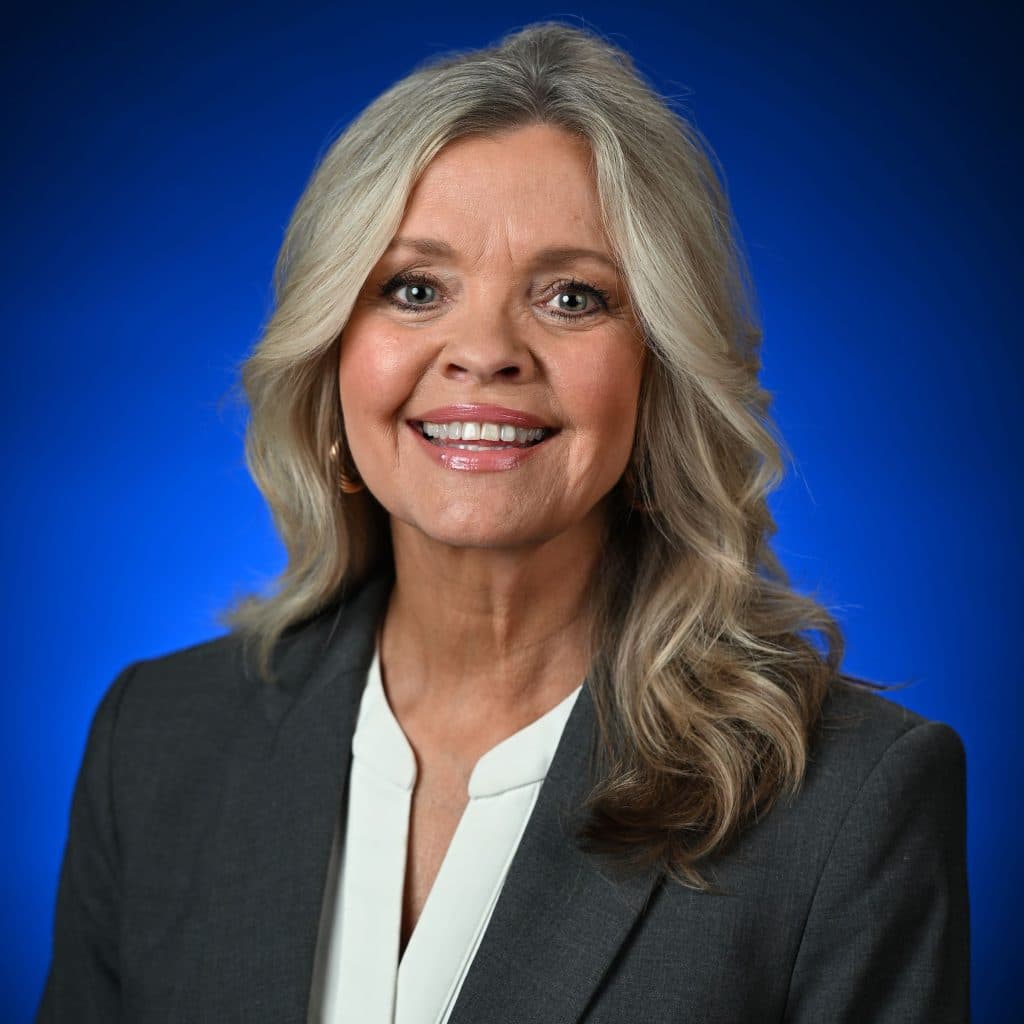According to Deaf Services Unlimited, Mississippi has only 22 nationally certified American sign language (ASL) interpreters, while neighboring states like Alabama (113), Arkansas (55), Georgia (245), Louisiana (70), and Tennessee (122) have significantly more.
An interpreter’s role is to provide hearing-impaired and deaf people equal access to information and interactions. Sign language is not just a means of communication for the feaf community; it’s the backbone of its cultural identity. It provides an inclusive platform that allows deaf individuals to connect, express themselves, and participate fully in society.

Ronda Bryan, an ASL instructor at Ole Miss, understands the importance of having qualified ASL instructors readily available in various public scenarios. Bryan grew up in a military family. At 12, they were stationed in Tucson, Arizona. There, Bryan met a deaf girl on base.
“Every day, I would go over to her house,” shared Bryan. “First, she taught me how to sign the basic alphabet. I would fingerspell a word like a tree, and she would show the formal sign.” Once Bryan went to college and saw a track for an interpreter training program, she never looked back.
In 2012, Bryan moved to Mississippi and became an ASL instructor at Ole Miss with only 19 students. Today, Ole Miss offers a new ASL interpreting minor, and Bryan is one of four faculty teaching over 450 students. The goals of the university’s new minor are to prepare students to continue their education in pursuit of interpreting licensure and ultimately national certification to increase the deaf student population at Ole Miss by improving services, and to increase the number of certified interpreters in Mississippi.
Bryan credits Noel Wilkin, the Provost and Executive Vice Chancellor for Academic Affairs, for starting the conversation.
“Wilkin had a run-in with a deaf student on campus,” shared Bryan. “The student shared that school was great, but they felt isolated being the only deaf student using ASL on campus.”
When Wilkin asked the student why there was an underrepresentation of deaf people on our campus, the student responded, “There aren’t enough services or interpreters.” Wilkin took that information up the ladder of command. The administration got motivated to make the changes necessary to bridge the gap.
Besides teaching and coordinating ASL classes, Bryan interprets for deaf students on campus and serves as a faculty adviser for Handband. Handband is a club on the Ole Miss campus that takes songs, translates them to ASL, and performs them for the deaf community on campus and in the community of Oxford. Their most notable performance is on game days at Vaught-Hemingway Stadium alongside the Pride of the South Marching Band. Indicated by white gloves, Handband members sign American Sign Language to hard-of-hearing and deaf spectators so that all fans can enjoy a game-day experience.
Recently, one of Byran’s former students, Seattle Seahawks wide receiver DK Metcalf, an Ole Miss alumnus, went viral for using sign language when trash-talking to his opponents. When Metcalf was asked for the reason behind his actions, he credited Bryan.
“Ms. Bryan was very cool,” Metcalf said. “I enjoyed the class.”
Bryan is excited about the potential impact of Metcalf’s use of sign language on the sidelines and in the game. She said his now-celebrity status could be huge in raising awareness for the deaf community.
“Awareness is everything as it promotes inclusion and opportunities for this often overlooked community,” she said. “I’m thrilled about the exposure it brings to our university, the ASL program, and the deaf community.”
After three decades in the field, Bryan is still dedicated to teaching and raising awareness for the deaf community. When asked why everyone should consider learning American Sign Language (ASL) basics, Byran often quotes Nelson Mandela: “If you talk to a man in a language he understands, that goes to his head. If you talk to him in his language, that goes to his heart.”